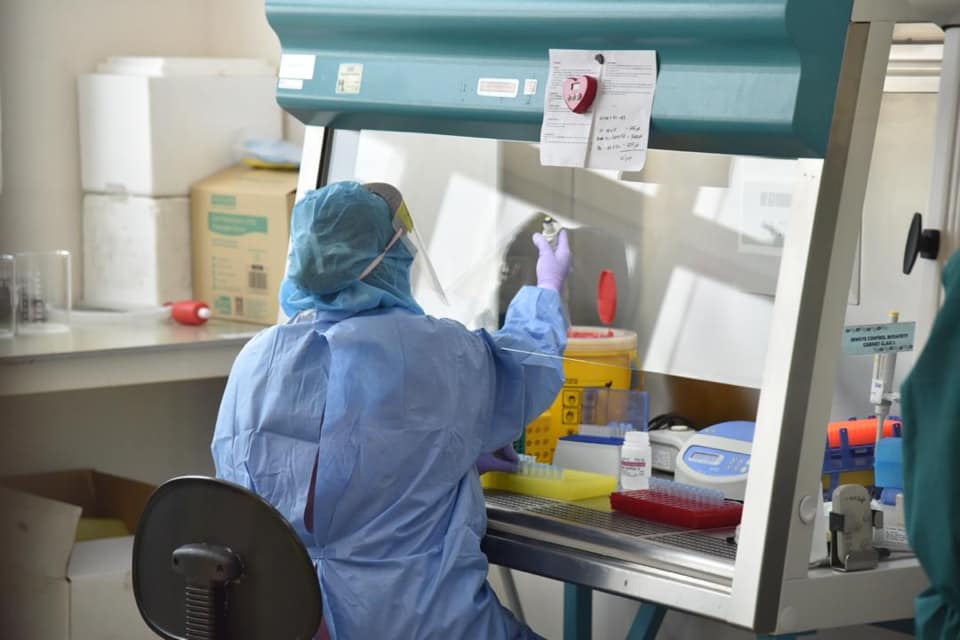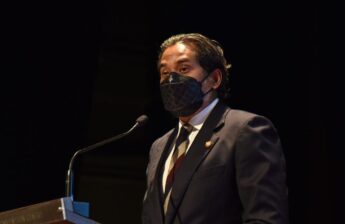KUALA LUMPUR, April 24 – The Ministry of Health (MOH) has finally achieved Covid-19 daily testing capacity of about 16,000 tests, about three weeks later from its earlier goal of the end of March.
“Our capacity testing initially was 11,500; now we have increased capacity to 16,000. Yesterday, we managed to do 13,614 samples a day, which means we’re pushing our capacity to 16,385, from 43 labs we have,” Health director-general Dr Noor Hisham Abdullah told a press conference today.
He said Malaysia will be adding automated testing from China-based Beijing Genomics Institute (BGI) in two laboratories — the Institute of Medical Research (IMR) here and Makmal Kesihatan Awam in Kota Kinabalu, Sabah — to increase testing capacity by 6,000 tests a day (5,000 in IMR and 1,000 in Sabah). BGI is a genomic sequencing company, with its global headquarters in Shenzhen, China.
Former Health deputy director-general Dr Lokman Hakim Sulaiman told CodeBlue earlier that Malaysia’s rate of testing per population for the coronavirus was “relatively low” compared to other successful countries like South Korea, New Zealand, and Singapore. Malaysia ran 3,416 tests per million people as of April 19, compared to Singapore, which is among the top worldwide, with 16,203 tests per million people.
The public health expert urged MOH to conduct studies to measure actual Covid-19 transmission in the community, as health authorities are currently using a targeted testing approach by screening only high-risk groups and locations.
“Otherwise, we are treading into a dangerous unknown situation of highly contagious infection,” Dr Lokman said.
Dr Noor Hisham also said that MOH’s discussion with an eight-member medical team from China — which arrived in Malaysia on April 18 to share China’s experience in combating the Covid-19 pandemic — was “interesting”, noting that the country, from which the coronavirus emerged late last year, had more experience than Malaysia in handling the virus.
“There are a lot of things we have discussed — from public health, the lab, identification of virus, whole genomic sequence etc. We also discussed the vaccine. They informed us [that] they’re doing Phase 2 clinical trials now in china. Hopefully by November or December, they’ll have the results. If the results are positive, we’ll move to Phase 3 [of] the clinical trial.”
The Health DG also said that Malaysia will volunteer to take part in Phase 3 of the clinical trial for the Covid-19 vaccine. In Phase 3 clinical trials, the efficacy and safety of the vaccine is tested on thousands of participants, according to the United States’ Centers for Disease Control and Prevention (CDC).
Dr Noor Hisham said Malaysia has discussed Covid-19 treatments with the Chinese medical team.
“In terms of policy and action plans that we have, [it’s’ almost in accordance to what they’ve done. We’re learning from them because they’re ahead of us [by] two months.”
A member of the Chinese medical team today reportedly praised Malaysia’s Covid-19 containment measures as “comprehensive and effective”, adding that they have also learned from the Malaysian team.
“After discussions with our Malaysian colleagues in recent days, we found that at all levels Malaysia have attached great importance to the control and the treatment of Covid-19, their measures are comprehensive and effective,” said Li Jun, head of the Chinese anti-Covid-19 Medical Consultant Expert Team, according to the Xinhua news agency.
The Chinese team has visited Sungai Buloh Hospital and Kuala Lumpur Hospital, which are Covid-19 designated hospitals in the Klang Valley, as well as research institutes.








